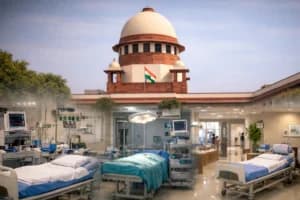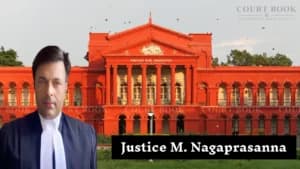The Madras High Court has clarified that statements recorded by the Enforcement Directorate (ED) under Section 50 of the Prevention of Money Laundering Act (PMLA) are not affected by the Indian Evidence Act, even if those statements are later alleged to be involuntary or made under coercion. The court emphasized that the issue of whether such statements were made voluntarily or not must be assessed only at the trial stage and cannot be raised at the discharge stage.
“Under Section 50 of the PML Act, officers of the Enforcement Directorate have the power to summon individuals, enforce attendance and record statements. These officers are not considered as police officers, and hence, statements recorded by them do not fall under the purview of the Indian Evidence Act. The issue of voluntariness will be decided only at the time of trial,” stated Justice R. Poornima.
Read Also:-Justice Sathya Narayana Prasad of Madras High Court Passes Away at 56
This observation came from a division bench comprising Justice G.R. Swaminathan and Justice R. Poornima in a criminal revision petition filed by S. Nagarajan, one of the directors of M/s Olympus Granites Private Limited. He challenged the Special Court’s refusal to discharge him from proceedings under Section 4 of the PMLA.
The petitioner, S. Nagarajan, was accused of being involved in illegal quarrying operations on leased government land by violating lease terms and allegedly causing substantial loss to the government. The allegations stated that the illegal acts were done in collusion with certain government officials and included the use of explosives, which led to the registration of offenses under various provisions of the Indian Penal Code, Explosive Substances Act, and subsequently, the PMLA.
The case against Nagarajan was initiated after the Superintendent of Police submitted a charge sheet concerning predicate offenses. Based on this, an Enforcement Case Information Report (ECIR) was registered, leading to the filing of a complaint by the ED before the Special Court. The petitioner’s plea for discharge was rejected by the Special Court, prompting him to file a revision petition.
The petitioner argued that the violations, even if proved, would fall under the Mines and Minerals (Development and Regulation) Act, 1957, and the Tamil Nadu Minor Mineral Concessions Rules, 1959, and not under the IPC or PMLA. He further contended that the ED relied improperly on confession statements and materials gathered during the investigation of predicate offenses.
Justice Poornima, however, found that the ED’s complaint was backed by prima facie material, including reports from district collectors, statements of officials, financial documents, bank records, and mining evaluation reports. The court observed that there was no procedural illegality in relying on such documents, and the charges appeared to be well-grounded at the current stage.
“The complaint was filed by the ED based on prima facie materials gathered from the Collector of Madurai, balance sheets, bank statements, mining evaluation reports, and documents from the Sub-Registrar. There is no illegality in relying on these during the framing of charges,” the judge held.
Justice Poornima further dismissed the petitioner’s claim that the Special Court erred in considering statements under Section 50 of the PMLA, reiterating that those statements are valid and admissible under the law.
In contrast, Justice Swaminathan expressed a different view, leading to a split verdict. He found fault with the Special Court’s discharge order, describing it as a non-speaking order that lacked proper reasoning or analysis.
“The court below was obliged to scan the materials on record and give a finding if there is sufficient ground for proceeding against the accused. No such exercise appears to have been undertaken. An order dismissing a discharge petition ought to contain proper reasons. Mere use of stereotyped expressions would not suffice,” Justice Swaminathan noted.
Read Also:-Madras High Court Directs State To Form Committees For Scrutiny Of Bogus Community Certificates
Due to the divergence of opinion between the two judges, the matter will now be placed before a third judge for the final decision. While Justice Swaminathan remitted the matter back to the Special Court for reconsideration, Justice Poornima upheld the trial court's decision and dismissed the revision petition.
The case, titled S Nagarajan v. Directorate of Enforcement (Crl.RC(MD)No.1025 of 2024), was argued by senior counsel Mr. Vikram Chaudhry, representing the petitioner, assisted by Mr. S. Elambharathi. The ED was represented by Additional Solicitor General Mr. ARL Sundaresan, assisted by Deputy Solicitor General Mr. K. Govindarajan.
This judgment reaffirms the legal position that ED officers are not police personnel and that confessional statements under the PMLA must be assessed during trial, not at preliminary stages like discharge.
Counsel for Petitioner: Mr. Vikram Chaudhry Senior Counsel for Mr.S. Elambharathi
Counsel for Respondents: Mr. ARL.Sundaresan, Additional Solicitor General, assisted by Mr.K. Govindarajan, Deputy Solicitor General
Case Title: S Nagarajan v. Directorate of Enforcement
Case No: Crl.RC(MD)No.1025 of 2024















